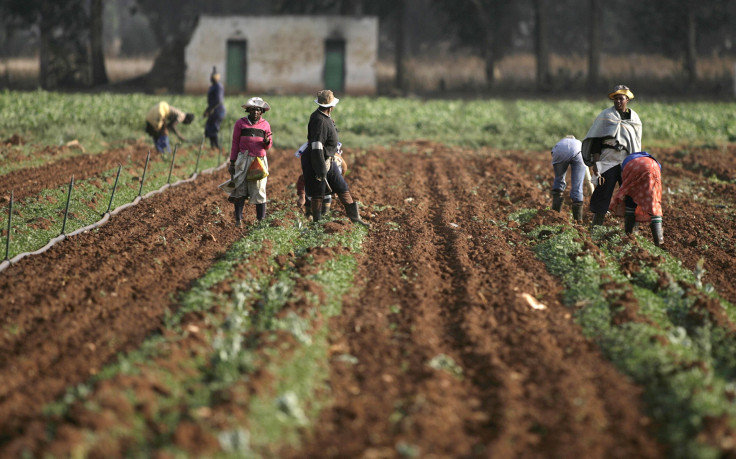Will Work For Food: African Leaders Discuss Scientific Solutions To Continental Food Crisis

About time last year, a million people were hungry in the West African country Ghana. They faced food insecurity -- often chronic -- despite their country achieving lower middle income status in 2011 and economic growth expectations of 8 percent this year. Things have improved since, but only slightly. This week, Ghanaian and other African officials have gathered in Accra, the capital, to find new ways to address a very old problem.
The event is known as the Africa Agriculture Science Week, or AASW, and it happens just once every three years. It's organized by the Forum for Agricultural Research in Africa, a Ghana-based organization. The focus of the conference is pan-continental -- for six days (beginning July 15), a diverse group of research institutions, NGOs, government officials and private sector specialists are discussing how new scientific and technological innovations can bring about the food security progress Africa so desperately needs.
About one in four people in Africa are food-insecure -- well more than 200 million people. Half the world's uncultivated agricultural land is located in Africa, and most of those who currently work the land are subsistence farmers. The potential for improvement is massive. A World Bank report released this year found that "Africa’s food systems, currently valued at US$313 billion a year from agriculture, could triple if governments and business leaders were to radically rethink their policies and support to agriculture, farmers, and agribusinesses, which together account for nearly 50 percent of Africa’s economic activity."
With better access to capital and smarter approaches to seeds and irrigation, the continent's food market could be worth $1 trillion as soon as 2030. That's exactly what the AASW has convened to discuss. Officials, executives and experts are sharing information on how to maximize resources and get smallholder farmers on board with broad initiatives to increase productivity.
Plenty of plans are already being carried out by organizations committed to addressing Africa's food shortages. The African Agricultural Technology Foundation, or AATA, has found success with a distribution program that helps make the best available seeds accessible to farmers at the optimal time of year for each farmer. AATA Executive Director Denis Tumwesigye Kyetere also said this month that a mechanization system for the production of cassava has been fruitful in Nigeria and Zambia, according to a press release from the Ghanaian government.
But there is a long way to go. The World Bank report notes that "Africa uses less than 2 percent of its renewable water sources, compared to a world average of five percent. Its harvests routinely yield far less than their potential and, for mainstay food crops such as maize, the yield gap is as wide as 60 to 80 percent."
Better technological advances in agriculture will not only help Africa feed the hundreds of millions of people who go hungry on a regular basis -- they will also help the continent achieve a higher level of self-sufficiency by lessening domestic governments' dependence on foreign aid. Africa does, after all, have enough natural resources to feed itself, but only if better international trade agreements can be realized. If those changes take effect, along with the improvements in agriculture and technology that the AASW is working toward, a solution to a deadly, endemic problem could finally be within reach.
© Copyright IBTimes 2025. All rights reserved.





















